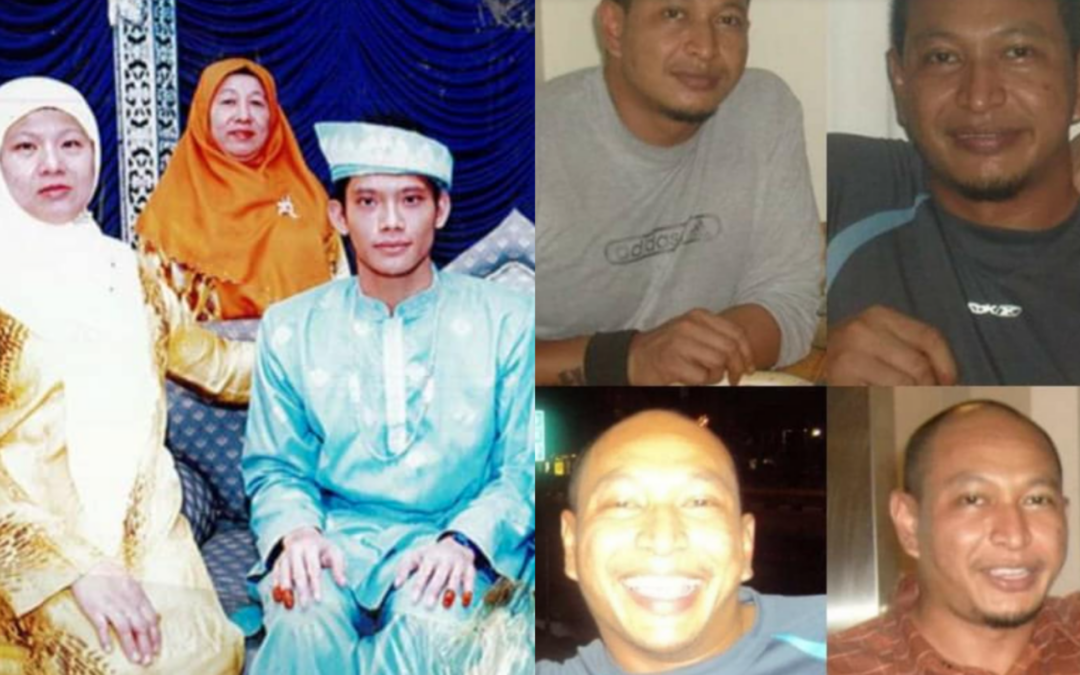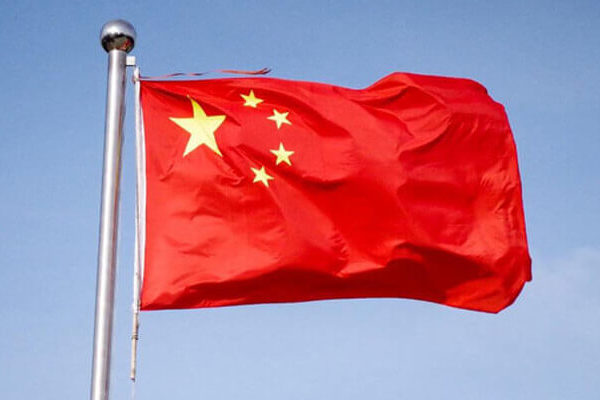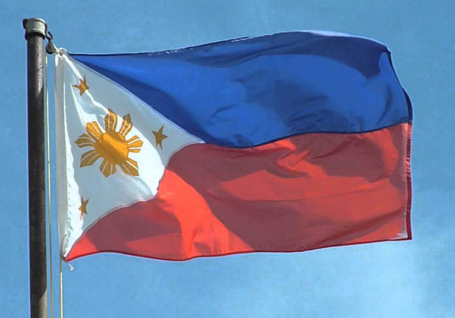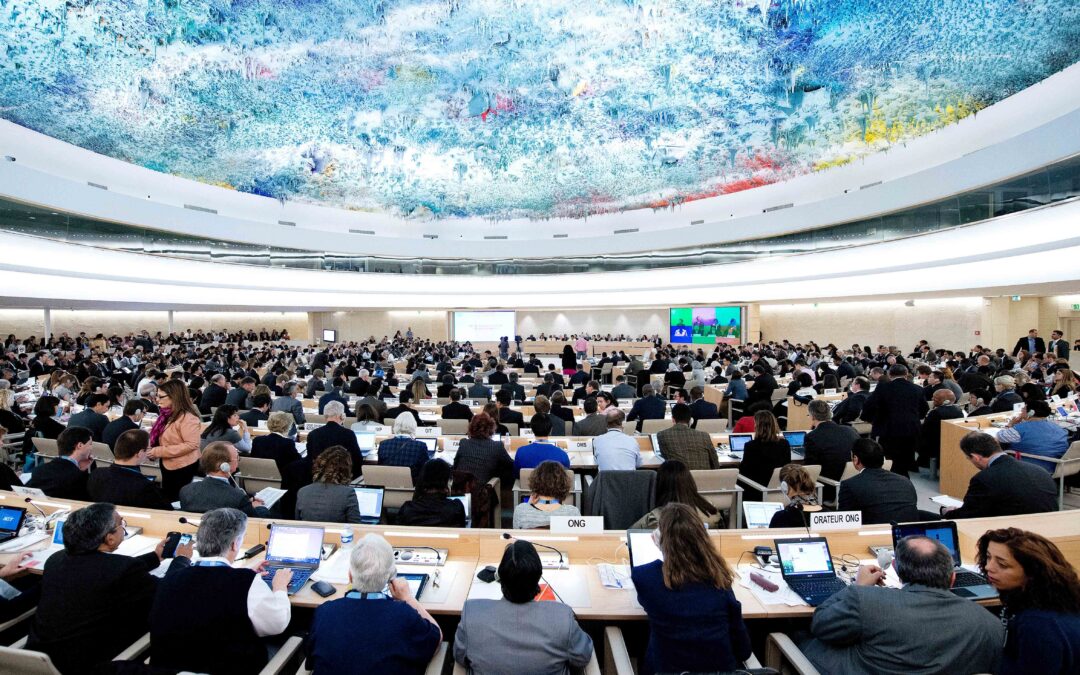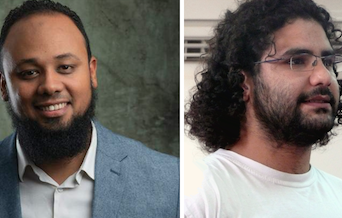
Egypt: international NGOs call for the immediate release of human rights defenders Mohamed El-Baqer and Alaa Abdel Fattah on the first anniversary of their arrest
The ICJ and six other international non-governmental organisations call on the Egyptian authorities to immediately and unconditionally release human rights defenders Mohamed El-Baqer and Alaa Abdel Fattah, who were arbitrarily arrested and detained a year ago today.
In the context of a massive crackdown on Egyptian civil society, the ongoing arbitrary detention of Mohamed El-Baqer and Alaa Abdel Fattah, and the continuous renewal of their pre-trial detention is paradigmatic of the systematic repression, acts of intimidation and prosecution used against human rights defenders and all dissenting voices in the country.
On September 29, 2019, Mohamed El-Baqer, human rights lawyer and Director of Adalah Center for Rights and Freedoms, was arrested at the State Security Prosecution premises in Cairo while he was attending an investigation session with his client Alaa Abdel Fattah, who had been arrested earlier in the morning of that same day.
Mohamed El-Baqer and Alaa Abdel Fattah were subsequently accused under Criminal Case 1356 of 2019 by State Security Prosecution and ordered 15 days of preventive detention under vague and unfounded charges that have been broadly used to criminalise all those that dare to defend human rights in Egypt: “belonging to a terrorist group”, “funding a terrorist group”, “spreading false news undermining national security” and “using social media to commit publishing offenses”.
Their place of detention remained unknown until October 1, 2019, when the prison authorities informed their families that they were detained in Tora High Security prison 2, which is known for its very poor conditions of detention.
One year on from their arrest, Mohamed El-Baqer and Alaa Abdel Fattah’s right to due process has been continuously violated through countless and unjustified renewals of their preventive detention by both the Supreme State Security Prosecution and Cairo Criminal Court.
While in prison both have been denied access to books, time in the prison yard, access to a radio, warm clothes during the winter, a mattress, and fresh air within their cells.
Moreover, on August 31, 2020, Mohamed El-Baqer was informed of new charges brought against him under a new criminal case, which include fabricated accusations of “joining an illegal organisation” and “being part of a criminal agreement with the purpose of committing a terrorist act from inside the prison”. The State Public Prosecution ordered 15 days of pre-trial detention against him.
The ongoing arbitrary detention of Mohamed El-Baqer and Alaa Abdel Fattah is part of a clear human rights crackdown which Egypt has been suffering from in recent years. Authorities have increasingly employed repressive tactics such as prolonged pre-trial detention, enforced disappearance, torture, and judicial harassment to silence all critical voices, including through unfounded investigations for national security and counter-terrorism related charges.
Our organisations recall that in the aftermath of the outbreak of popular protests across Egypt in September 2019, several other human rights defenders have been arrested, including women human rights defenders Mahienour El-Massry, Esraa Abdel Fattah and Solafa Magdy, who as of today all remain detained under similar trumped-up terrorism charges and spreading false news.
We the undersigned strongly condemn the ongoing arbitrary detention and judicial harassment of Mohamed El-Baqer, Alaa Abdel Fattah, Mahienour El-Massry, Esraa Abdel Fattah, Solafa Magdy as well as other human rights defenders, which aim at punishing them for their legitimate human rights activities.
Given the poor detention conditions in the country’s detention facilities, the high risk of contracting COVID-19, and the totally unacceptable deprivation of their liberty, we reiterate our call on the Egyptian authorities to immediately and unconditionally release them as well as all other human rights defenders arbitrarily detained in Egypt. We further urge the authorities to immediately put an end to the abusive use of anti-terrorism charges to criminalise human rights defenders in the country.
Signatories:
Cairo Institute for Human Rights Studies (CIHRS)
DIGNITY – Danish Institute Against Torture
EuroMed Rights
International Commission of Jurists (ICJ)
International Federation for Human Rights (FIDH), in the framework of the Observatory for the Protection of Human Rights Defenders
International Service for Human Rights (ISHR)
World Organisation Against Torture (OMCT), in the framework of the Observatory for the Protection of Human Rights Defenders

